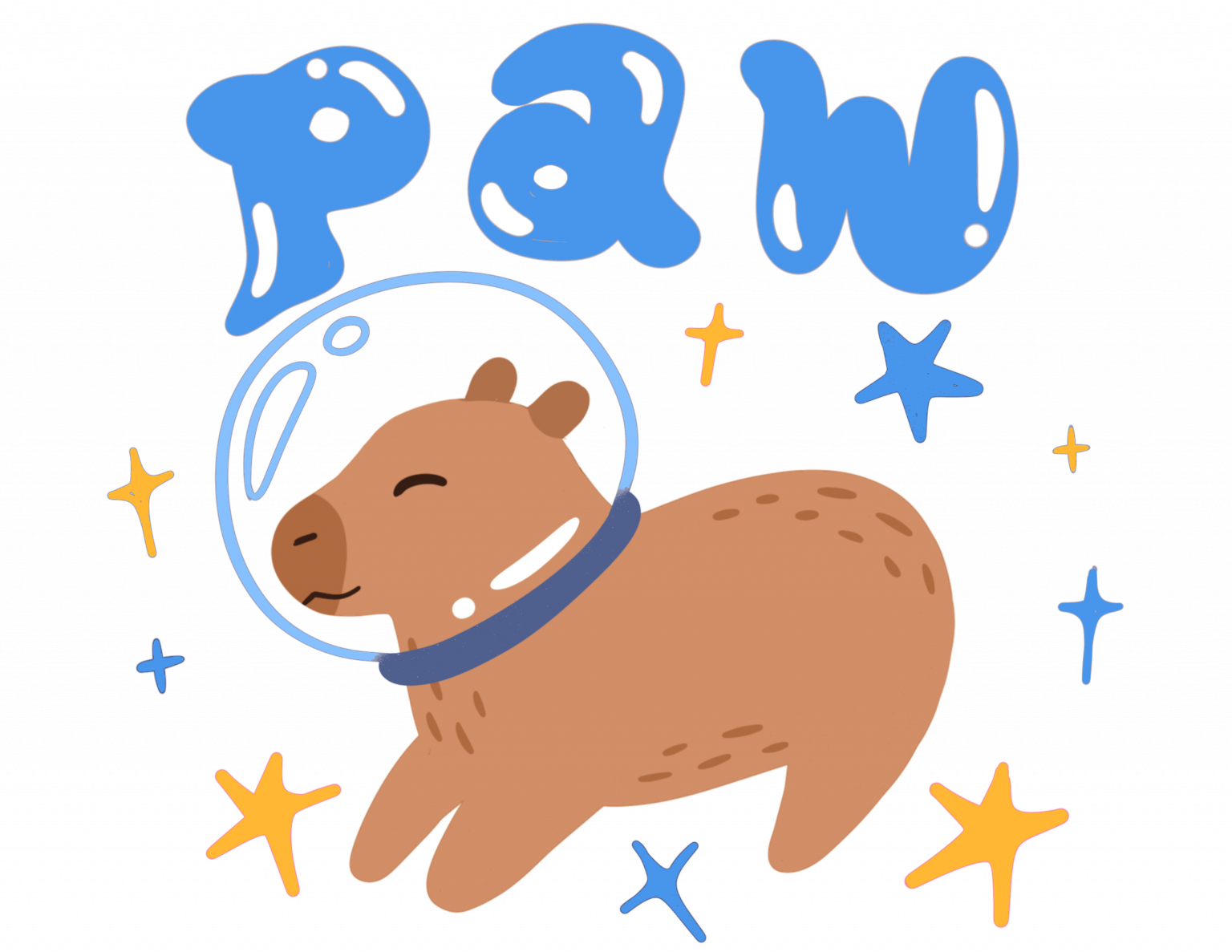Graphic by Katie Fang/PAW
Content warning: homophobia
From informative presentations to a self-defense workshop to a Drag King performance, this year’s annual Pride Admit Weekend (PAW) left its impact on new admits!
PAW is one of the many Diversity Admit Weekends held at UCLA. Diversity Admit Weekends are student-run yield programs meant to introduce the resources and support available to historically underrepresented groups. Created in 2014 by UCLA Group 1, a student group dedicated to “community outreach and mentorship of local LGBTQIA+ identified high school students,” PAW is specifically designed to support and uplift queer admits by connecting them to the various resources UCLA has for queer students, with an emphasis on queer intersectionality.
This year’s iteration of PAW was held on April 12-14, 2024. PAW was hosted on the UCLA campus on the 13th, with the other days being virtual to accommodate out-of-state and international admits. This year, PAW followed the theme of “U(PAW)n The Stars,” with cosmic-themed decorations and Captain Carlos Cork the Capybara, the mascot for the event.
As a student-run organization, PAW exists thanks to the hard work of the volunteers, the planning committee, and the director, third-year undergraduate student Ava Rosenberg (they/she). (For more information about Ava’s work and other awesome events, check out Jessica Rose’s article “Pride Admit Weekend Needs More Volunteers: Here’s Everything You Need to Know.”)
The planning committee and general volunteers consist entirely of students, many who attended PAW as new admits themselves and wanted to give back to the queer community. Sami Coleman (they/them), a first-time member on the planning committee, said the “experience [they] had at PAW was crucial to [their] decision of choosing UCLA… [and] [a]s a volunteer this year, [they] wanted to provide incoming students with the same sense of community in hopes that they would feel comfortable coming to UCLA next year.” They emphasized that “[q]ueer yield events like PAW are important because they build community and let incoming students know that they will have a place and family here to support them.”
Noah (he/they), another newcomer on the planning committee, said that “PAW is important because students are able to feel like they belong on campus and are truly cared about. PAW adds to the UCLA community by showing that the queer presence is just as important as the… events for other groups that maybe make people feel like they don’t belong.”
The hard work and dedication of everyone involved brought PAW to life. Ally (he/she), an admit who attended PAW’s virtual sessions, said that his overall experience was a “10/10! I enjoyed every workshop, panel, and bonding activity! It was very informative. I wouldn’t have known the resources and opportunities for queer students at UCLA had I not attended PAW.”
“PAW, to me, meant finding a community at UCLA,” Ally said. “At my high school, I am very openly queer. That has resulted in being yelled at with slurs and other negative comments. Knowing that there is such a big community and welcoming environment at UCLA for LGBTQ+ students means so so much to me.” She said that “[a]ttending PAW has definitely pushed me towards attending UCLA. I think the event is amazing and has made me feel seen. It’s unlike any other college program I’ve attended.”
Through the overwhelmingly positive response from attendees, it is clear that events like PAW matter. In a time where queer rights are constantly challenged, with over 300 anti-LGBTQ+ introduced in just January of this year, we need to keep working to uplift and support the queer community now more than ever.
A sense of community is crucial for queer students in higher education. A study done by the Williams Institute in 2022 revealed that 33% of LGBTQ+ people at four-year colleges faced some form of harassment. A follow-up study in 2023 further revealed that 29% of LGBTQ+ POC said that they had poor mental health during college. It is through programs like PAW that we connect queer individuals to all available resources throughout college.
However, because PAW relies on student support, it risks disappearing without enough volunteers. Without PAW at UCLA, there will be no queer yield programs left in the country and queer students will have a much more difficult time finding community and valuable resources on campus. Next year, please keep a look out for news on PAW and consider volunteering to take part in creating a more welcoming and impactful experience for upcoming queer admits!
Credits:
Author: Melissa Vera (She/They)
Artist: Katie Fang (She/Her)
Copy Editors: Rhea Morita (They/Them), Bella (She/Her)

